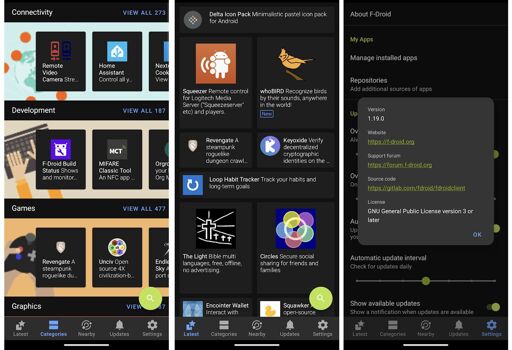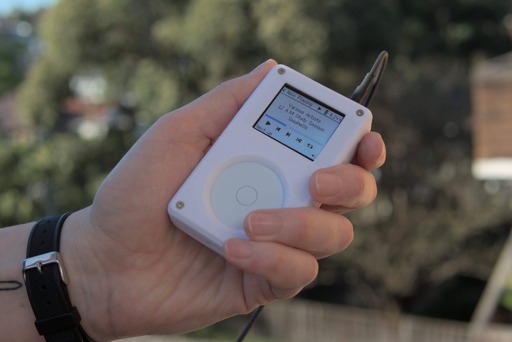I don’t think such a website would see much use. Maybe better to contribute to an existing project that you are using.
poVoq
Admin on the slrpnk.net Lemmy instance.
He/Him or what ever you feel like.
XMPP: povoq@slrpnk.net
Avatar is an image of a baby octopus.
- 3 Posts
- 35 Comments

 2·25 days ago
2·25 days agoJudging by the screenshots there are better looking IRC apps, but fine 🤷

 1·2 months ago
1·2 months agoLol, confidently saying stuff you obviously have no idea about and just believing Signal’s “trust me bro” nonsense. Have fun using that honeypot.
(Those “security researchers” you are referring to have no access to the Signal infrastructure and usually only look at the cryptographic algorithms used by Signal, which are indeed good and used by other systems as well these days).

 1·2 months ago
1·2 months agoA timing attack is extremely realistic when you control one of the end devices which is a common scenario if a person gets arrested or their device compromised. This way you can then identify who the contacts are and with the phone number you can easily get the real name and movement patterns.
This is like the ideal setup for law inforcement, and it is well documented that honeypot “encrypted” messengers have been set up for similar purposes before. Signal was probably not explicitly set up for that, but the FBI for sure has an internal informant that could run those timing attacts.

 1·2 months ago
1·2 months agoThere are some mitigations in place, yes, but Sealed Sender on a centralized platform is snake-oil as someone with server access can easily do a timing attack and discover who communicated with whom.

 7·2 months ago
7·2 months agoIf you are even remotely involved in any activist type of things, you certainly don’t want this US government honeypot have your phone-number and device id.

 23·2 months ago
23·2 months agoApparently this is using face recognition technology from Russia 🤷

 3·2 months ago
3·2 months agoYeah, free for open-source projects or so. Never used it though as I either use the Codeberg one or a self-hosted one I recently set up. But for a small project I would not recommend self-hosting it as it is surprisingly heavy on server resources.

 3·2 months ago
3·2 months agoShould be possible yeah, but I think the official weblate instance is better set up for github.

 5·2 months ago
5·2 months agoWeblate. You can use the instance from Codeberg.org if your project is open-source.
Probably not, but you can likely improvise by binding the audio mute to a button in your OS.
You cam try https://jami.net/
But I also think Mumble is the better solution, but of course not p2p.
Many things are very similar on Linux compared to Windows (e.g. Browsing, Steam). One big difference is that people prefer using package managers to install software (instead of downloading and installing it manually).
This. Especially for drivers, always use the package manager of your distro and do not attempt to manually install Nvidia drivers you downloaded from their website.
So that the roomba doesn’t get bored.

 8·2 months ago
8·2 months agoYes, you could continue using the old unmaintained app, but this is similar to using old proprietary app versions that lack security updates and are always at risk of stopping to work due to some changes in your OS. So that is far from ideal.
Non-commercial is really not well defined legally. For example in Germany, a public tax funded broadcaster was found in breach of a CC-BY-NC license for using an image on their website. And many similar legal examples exist. So basically anything that involves a service offered to more than one person, even if totally free and donation funded, is not safe from litigation.
And obviously, if upstream changes the license to something that triggers a hostile fork, it is unlikely that you will get a commercial license for that hostile fork. Furthermore, even if you somehow can make a deal, you will always remain hostage of that proprietary license.
FOSS licenses are explicitly designed to protect the users of the software from such potentially abusive licensing, so I really don’t think anyone will see this as an improvement.

 23·2 months ago
23·2 months agoWell, if they want to try that they are of course free to try, but the argument has a big gaping hole:
They might not ever change the license terms afterwards for software already on your hard-drive, but they absolutely can do so for updates and likely will. Normally that would result in a fork if the new terms are bad, but who would be willing to fork software under a restrictive non-commercial license that doesn’t even allow you to collect donations for running the infrastructure?
So in the end you are basically back at square one with nothing but nice promises by them and still vendor locked.
Maybe, but the digital Euro has none of the buyer’s privacy protection of Taler.
I personally suspect that the digital Euro will not see much every-day uptake because it will be overly bureocratic and a hassle to use, but it might end up as an common way to charge your Taler wallet.
https://www.gls.de/taler is the page of the German bank.
The forum of the ongoing project has some interesting links, but is sadly not very active: https://ich.taler.net/









The core features are already covered by git forges and foss news sites, and nearly no one wants more work like scheduling in their hobby project.
There is always a strong urge to start a new project, but your time is very likely better spend contributing to a project or reviving a useful project that got abandoned.